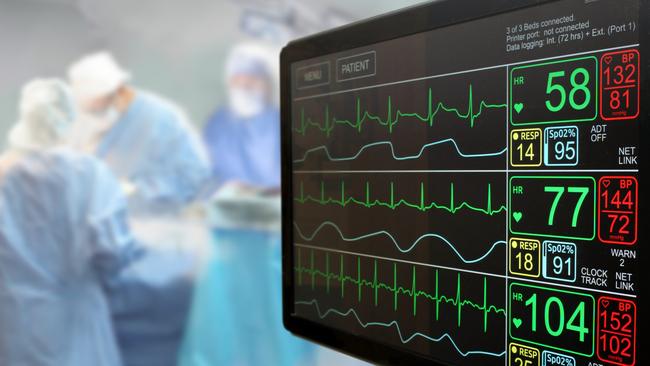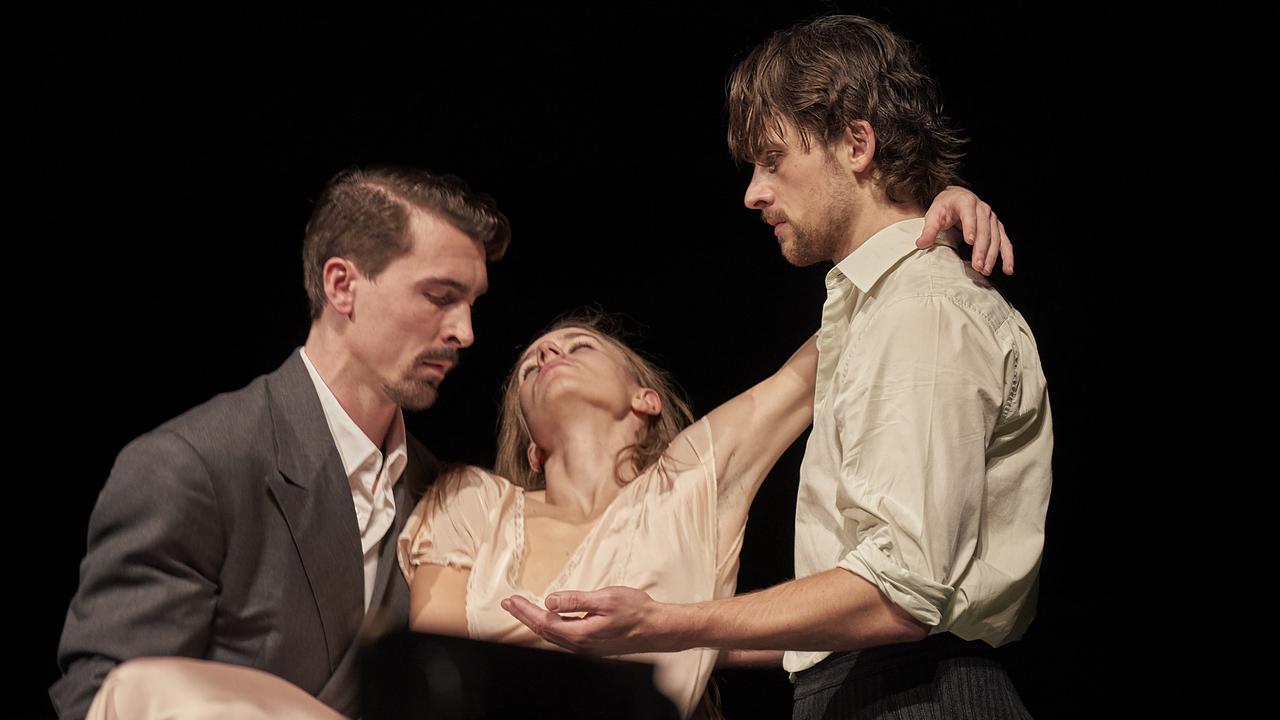Paramedic Von Borstel; surgeon Westaby: tales of the human heart
From ancient beliefs to stories of surgical wizardry, these books delve deep into our most vital organ.

“The heart has its reasons, which reason knows not of.” So wrote French philosopher and mathematician Blaise Pascal in Pensees in 1669.
Of all human organs, the heart has the greatest symbolic power. It’s the only one to be represented by a simple ideogram — the love heart — and has the greatest metaphoric reach of any body part.
We can be soft-hearted, hard-hearted, lighthearted or broken-hearted. We can follow our heart, wear it on our sleeve, have it in our mouth or in the right place. We can even lose it to another.
When the ancient Greeks debated whether the seat of consciousness lay in the brain or the heart, Aristotle went with the majority view, likening the heart’s role to the effective government of a city. “The heart is the chief organ of the body and the centre for thought and the appreciation of sensation.’’
We may no longer believe our intellect is housed in the heart, but we still see it as the home of our emotions, putting a hand to our chest to indicate strong feelings or to demonstrate our connection to a belief or another human being.
So how did what might be seen as just a mechanical pump come to represent so much more in our imaginations?
It turns out some of the metaphors may have a basis in science. The heart is particularly susceptible to our emotional state, recent research shows, changing its rhythm in response to stress, grief and a range of other feelings.
It may even be possible to die of a broken heart. Broken-heart syndrome (otherwise known as stress-induced cardiomyopathy) causes symptoms similar to a heart attack, including difficulty breathing and severe chest pain. In Heart, German paramedic Johannes Hinrich von Borstel describes how a lovesick heart can fail. Unlike a heart attack, which is usually triggered by a blockage in one of the coronary arteries, the symptoms of broken-heart syndrome are believed to arise from the action of stress hormones.
Surging hormones cause the left ventricle to balloon, making it less able to pump and leading to dramatic changes in rhythm. This can cause severe short-term failure of the heart muscle and in rare cases death, though most patients make a full recovery if they receive immediate treatment.
It’s not just disappointment in love that leads to the syndrome. The American Heart Journal has published a non-exhaustive list of other possible causes, including pain, arguments, car accidents, bad news, financial loss, surprise parties and public speaking. According to Borstel, you can also get it from winning the lottery.
Borstel’s book has plenty of other information about the heart, including advice on how to keep this vital organ at peak fitness (eat healthily, exercise, sleep well, don’t smoke and have plenty of sex). The attempts at humour are a bit lame, but the book does offer some useful basic information.
British surgeon Stephen Westaby offers a more profound discussion of the heart, and medicine more broadly, in his memoir Fragile Lives. In a reflective, often philosophical look back over his career, Westaby offers ruminations on the nature of consent, on what makes a life worth living and on medical hubris, as well as rollicking stories of surgical derring-do.
He portrays himself as something of a maverick in more or less constant battle with faceless hospital administrators, ethics committees and bureaucrats who seek to rein in his attempts to save patients on the operating table.
He clearly savours the adrenalin rush of performing procedures nobody has attempted before, whether it is implanting a rubber tube to replace a burned-out windpipe in a toddler from South Africa or doing a dangerous heart valve repair in a woman who has rejected medical advice to terminate her pregnancy.
Westaby is probably best known for his pioneering work in artificial hearts, mechanical pumps that offer an alternative for people languishing on organ donation lists or who are deemed ineligible for transplant.
The first patient to receive one of the mechanical hearts, who Westaby calls his “endearing cyborg”, had already received the last rites when he came to see the surgeon in 2000. Peter seemed to the surgeon like “a concentration camp victim, a dead man walking, all hope abandoned”. He would, Westaby thought, “be lucky to survive a haircut”.
But that, he decided, was what mechanical hearts were for: to improve an existence that had become intolerable and to prolong life in those who had nothing more to gain from traditional surgical approaches. He asked Peter if he was prepared to be a guinea pig.
“I had serious doubts whether he’d survive a general anaesthetic,” Westaby writes, “but if we took him on, no one could claim that we’d picked an easy patient or one who didn’t need the pump.”
The Jarvik 2000 pump he implanted in Peter’s chest was small, the size of the surgeon’s thumb, but it was powerful, pumping five litres of blood per minute, as much as a normal heart. Because the flow from the pump is continuous, the patient has no pulse. When one recipient later collapsed, ambulance officers took him straight to the morgue, assuming the lack of pulse meant he was dead.
For Peter, the pump brought miraculous results. His breathlessness disappeared, his skin turned a healthy pink, his leg ulcers healed and he began to lose the litres of fluid that had accumulated in his body.
With his new lease of life, Peter wrote a book and devoted himself to raising money for charity, but he became increasingly ambivalent about the machine that, in the end, gave him an additional seven years of life. He had to carry equipment everywhere he went, changing his batteries every eight hours. He struggled with depression and contemplated “what life on a battery does to you as a person”.
“You’re an invented entity trying to cope with it, trying to deal with the emotional context of it. You become cold-hearted,” Westaby quotes him as saying.
It’s a reminder that the bravest of medical interventions can have unpredictable outcomes. And that, when it comes to the heart, the metaphors are the one thing that will never die.
Jane McCredie is a writer with an interest in science and medicine.
Heart: The Inside Story of Our Body’s Most Important Organ
By Johannes von Borstel
Scribe, 288pp, $29.99
Fragile Lives: A Heart Surgeon’s Stories of Life and Death on the Operating Table
By Stephen Westaby
HarperCollins, 344pp, $32.99


